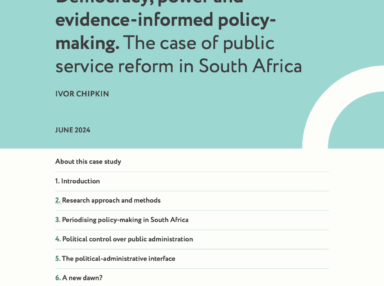Rommy Morales-Olivares presents research at the 16th Conference of the European Sociological Association (ESA)
Rommy Morales-Olivares, a Visiting Researcher at the New South Institute, attended and spoke at the 16th Conference of the European Sociological Association (ESA), held in Porto, Portugal, from August 27 to 30, 2024. The conference, themed “Tension, Trust, and Transformation,” gathered sociologists from around the world to engage in discussions on contemporary global challenges.
Dr. Morales-Olivares delivered presentations in two sessions. On August 28, she presented a paper titled “Economic Progress: Reconstructing Collective Self-Understanding in Chile and Spain” within the Economic Sociology track (RN09), from 2:30 pm to 4:00 pm. This paper explored how these countries are reshaping their collective self-perception in relation to economic development.
On August 29, Dr. Morales-Olivares presented a second paper, co-authored with Jelena Vidojević, Co-Founder and Research Fellow at the New South Institute. Their joint research, “In the Pursuit of a Transformative Welfare State: The Curious Cases of Chile and South Africa,” was presented under the Sociology of Social Policy and Social Welfare track (RN26) from 11:00 am to 12:30 pm. This presentation offered a comparative analysis of welfare state development in Chile and South Africa, addressing the continuing influence of neoliberal frameworks on social justice and equitable development.
Summary of the Joint Paper Presented:
The co-authored paper, “In the Pursuit of a Transformative Welfare State: The Curious Cases of Chile and South Africa,” critically analyzes the development of welfare states in Chile and South Africa after their transitions to democracy. Despite early promises of transformative change, both nations have largely maintained neoliberal economic structures, limiting their ability to reduce inequality and promote social inclusion.
In South Africa, poverty, inequality, and structural unemployment have persisted since the end of apartheid, revealing tensions in the African National Congress (ANC)’s efforts to reshape the economy. While the post-apartheid government made strides in building a capable state, the politicization and capture of key institutions have hindered its capacity, resulting in a social protection system that excludes large segments of the population.
In Chile, the neoliberal legacy of Pinochet’s dictatorship (1973-1990) resulted in a fragmented and privatized welfare state. Although post-1990 democratic governments made adjustments, they did not fundamentally reverse this model, perpetuating socioeconomic inequality.
Through this comparative analysis, the paper underscores how the enduring influence of neoliberal frameworks in the Global South continues to challenge efforts toward creating inclusive welfare states, posing significant obstacles to social justice and equitable development.



